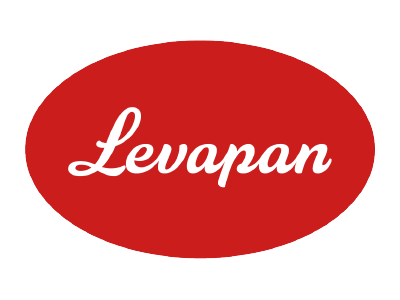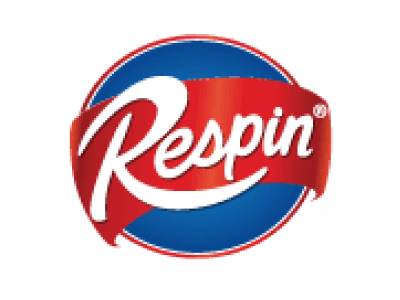- Emerging Narratives: Understanding the Complexities of us news and the American Dream.
- The Evolution of Economic Opportunity
- The Impact of Social and Political Division
- The Role of Media in Shaping Perceptions
- Educational Disparities and Access to Opportunity
- The Shifting Definition of Success
- Navigating the Challenges Ahead
Emerging Narratives: Understanding the Complexities of us news and the American Dream.
The concept of the “American Dream” – the belief that through hard work and determination, anyone can achieve success and prosperity – has been a cornerstone of the national identity for generations. However, the current socio-political landscape and shifting economic realities are prompting many to question its accessibility and enduring relevance. The daily stream of us news reflects a nation grappling with persistent inequalities, economic uncertainty, and a growing sense of disillusionment. This article delves into the complexities of these emerging narratives, exploring how the traditional understanding of the American Dream is being challenged and redefined in the 21st century.
The proliferation of information, coupled with increasing social and political polarization, means that the stories reaching individuals are profoundly influencing perceptions about opportunity and social mobility. Understandably, these perceptions are influencing our political discourse and highlighting a need for a more nuanced understanding of the current challenges facing the nation. The relentless cycle of reporting on economic disparities, social injustices, and political divisions can certainly erode faith in established institutions and leave individuals feeling powerless in the face of systemic problems.
The Evolution of Economic Opportunity
Historically, the American Dream was often tied to securing a stable job, owning a home, and providing a better future for one’s children. However, the economic landscape has changed dramatically in recent decades. The decline of manufacturing, the rise of the gig economy, and the increasing cost of education have created significant barriers to entry for many aspiring to achieve financial security. The increasing wealth gap is a stark reminder of the challenges in creating equal opportunity for all. Affordable healthcare coverage continues to be a crucial point of contention, and without access, many families find themselves facing devastating financial burdens in times of medical crisis.
| 1967 | $59,000 | 12.8% |
| 1980 | $47,700 | 13.0% |
| 2000 | $68,000 | 11.3% |
| 2022 | $74,580 | 11.5% |
The Impact of Social and Political Division
The United States is currently experiencing a period of intense social and political division, fueled by factors such as partisan polarization, racial tensions, and cultural clashes. This division directly impacts people’s sense of community and belonging, making it harder to build consensus and address shared challenges. Furthermore, negative media coverage of societal issues can contribute toward dismantling trust in governmental institutions and reduce public participation. The open access to information from various sources also introduces complexities, as citizens are constantly navigating competing narratives and potential misinformation.
The Role of Media in Shaping Perceptions
The media plays a pivotal role in shaping public perceptions of the American Dream and the challenges facing the nation. The selective reporting on events, framing of issues, and emphasis on conflict can all contribute to a distorted and incomplete understanding of reality. The growing influence of social media, where algorithms often prioritize engagement over accuracy, further exacerbates this problem. Looking at the sheer number of information outlets available today, there is an increased responsibility on individuals to independently assess and interpret the content they consume. Understanding and identifying bias across different news sources is an increasingly important skill.
- Social Media Algorithms: Tend to reinforce existing beliefs, creating echo chambers.
- Partisan Media Outlets: Often present information in a biased manner, reinforcing ideological divisions.
- Citizen Journalism: Offers alternative perspectives but can lack fact-checking and editorial oversight.
Educational Disparities and Access to Opportunity
Access to quality education remains a critical determinant of social mobility. However, significant disparities in funding, resources, and educational outcomes persist across different communities and demographic groups. The increasing cost of higher education, coupled with rising student debt, creates a substantial barrier to entry for many aspiring students. The burden of student loan debt can have long-lasting consequences, delaying homeownership, family formation, and other milestones traditionally associated with achieving the American Dream. Furthermore the quality of early childhood education is often determined by socioeconomic status, furthering the cycle of disadvantage.
The Shifting Definition of Success
As the traditional markers of success become increasingly unattainable for many, there is a growing recognition that the American Dream needs to be redefined. Some argue that success should not be solely measured in terms of wealth and material possessions, but rather by factors such as personal fulfillment, community engagement, and environmental sustainability. There’s a move toward valuing skills like adaptability, creativity, and critical thinking which are essential in an increasingly complex and rapidly changing world. Building community, fostering meaningful relationships, and feeling a sense of purpose are just as important to achieving happiness as financial security.
- Pursue meaningful work aligned with personal values.
- Invest in strong relationships and community engagement.
- Prioritize personal well-being and mental health.
- Contribute to a more just and sustainable society.
Navigating the Challenges Ahead
Addressing the challenges to the American Dream requires a multi-faceted approach that tackles economic inequality, promotes social justice, and restores trust in institutions. Policies aimed at increasing access to affordable healthcare, education, and housing are essential. Investing in job training and workforce development programs can help individuals acquire the skills needed to succeed in the 21st-century economy. Strengthening regulations to protect workers’ rights and promote fair wages is also crucial. Furthermore, fostering dialogue and understanding across different communities can help bridge divisions and build a more inclusive society.
| Healthcare | Expand access to affordable coverage, lower prescription drug costs. |
| Education | Increase school funding, reduce student debt, expand early childhood education. |
| Economy | Raise the minimum wage, strengthen worker protections, invest in job training. |
| Housing | Increase affordable housing options, expand rental assistance programs. |
The pursuit of the American Dream remains a powerful aspiration for many, but achieving it requires recognizing the systemic barriers that prevent some from even having a fair chance. The present day requires a commitment to creating a more equitable and just society where opportunity is truly accessible to all. Acknowledging the evolving needs and values of the 21st-century population and redefining success beyond traditional measures, will empower individuals to thrive and contribute to a vibrant and prosperous future.








